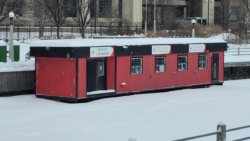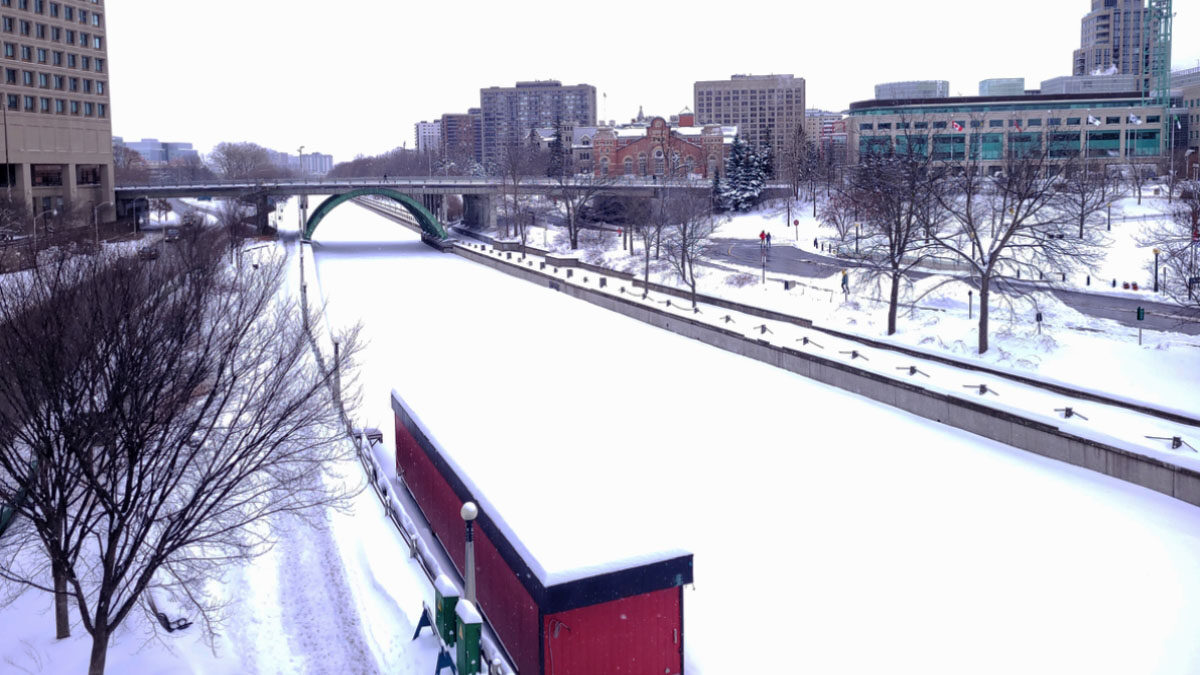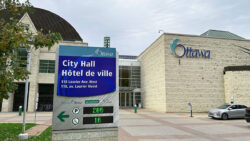For many living in the Ottawa region, winter is a time to look forward to. Not for the storey-high snowbanks, not for the bitter cold, nor the puddles of salt-infused slush, but instead for a tradition that has lasted 52 years: Ice skating on the Rideau Canal Skateway.

Those looking forward to skating on the canal this year may be left out in the cold, as Valentine’s Day has come and gone and there is no sign that the ice is close to being ready. The weather forecast for the last half of February is not promising.
Unseasonably warm weather led to the cancellation of the Ice Dragon Boat Festival, a staple at Winterlude, which kicked off Feb. 3.
For Bava Sivagirinathan, the closure of the skateway has been frustrating for her and her friends.
“You wait all summer to go get hot chocolate with your friends, go skating, have the mits and the jackets on and I feel like it’s very disappointing,” said the Carleton University student.
Sivagirinathan, who grew up in Toronto, was looking forward to skating on the world’s largest naturally frozen ice rink.
“I think it is exciting, more exciting than me skating as a kid at Nathan Phillips Square, which is just a small circle you go round and round in.”
The pandemic prevented her from going last year, and now she had hopes she would get her chance this year.
“Everyone talks about it every single year,” she says. “That’s one of the biggest things that happens in Ottawa. Especially for Carleton students because it’s right there.”
The same can be said for University of Ottawa students, like Ryan McCormack. He says that the canal remaining closed has affected his university experience.
“It’s a shame how long it takes to be open,” said the 20-year-old. “We’re already almost two months into winter and it’s not open yet, and it feels like once it’s open it’ll only be for a few weeks before it’ll have to close again.”
McCormack, originally from Montreal, enjoyed skating on the canal last season for the first time.
“It’s cool to just see how many people are there at varying skill levels, and skating on to basically a whole new area with different people and sights which is very different to a normal rink.”
The impact of the skateway remaining closed can be felt on both campuses, according to McCormack.
“I think because of how the canal can connect the two schools, it provides a cool link where you can just put on skates and go … rather than having to drive or take public transport,” he said.
While this year is on pace to be the latest start for the opening of the skateway, the length of the skating season has been on a downward slide.
In the first 30 years of the canal being opened, the start date was in December 21 times and the skating season lasted 45 days or more 28 times.
Since then, the skateway has opened only twice in December and has had 10 seasons where there were fewer than 45 days of skating, with the lowest was 28 days in 2021.
Chris Burn, a professor of Geography and Environmental Studies at Carleton University, expects this trend to continue.
“Ottawa is at a barrier of a climatic zone,” he said. “The warmer air from the Gulf of Mexico is coming up and making our winters warmer and snowier.”
Burn’s research is focused on the impact of climate change on permafrost in the Arctic, where he’s seen similar trends to those in Ottawa.
He noted the construction of the Inuvik-Tuktoyaktuk highway as a situation comparable to the RIdeau Canal Skateway. The increasingly warm autumn season began to melt permafrost and stalled construction of the highway, causing massive delays.
“It may not be this year, but a few years from now, with the way things are going you have to expect seasons where the NCC will not be able to safely prepare the canal to be open to the public,” he said.
According to the NCC, their teams are “working relentlessly to safely open a section of the skateway.”




